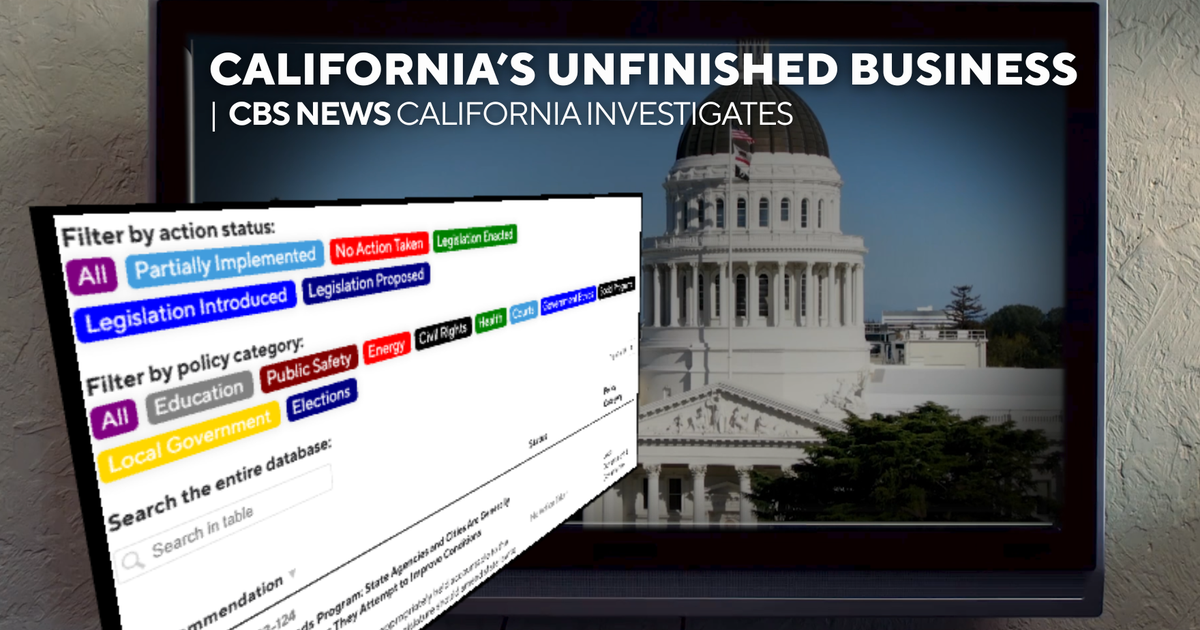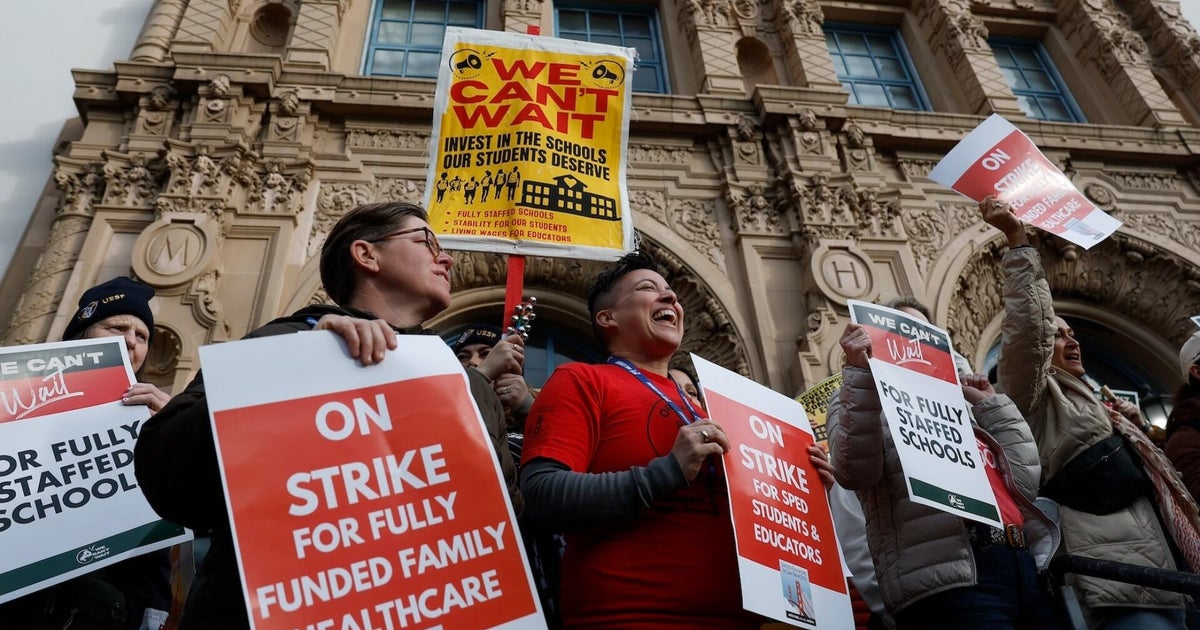Disabilities Program Part Of Health Care End Game
TALLAHASSEE (CBSMiami/NSF) – While House Speaker Jose Oliva is using health care as a bargaining chip to end the 2020 legislative session, Senate Republican leaders have their own health-care priorities they want resolved in the waning days.
Senate Appropriations Chairman Rob Bradley, R- Fleming Island, told The News Service of Florida on Wednesday that the Senate remains focused on the state Agency for Persons with Disabilities and the Medicaid-funded iBudget program, which provides services to tens of thousands of people with developmental and intellectual disabilities.
"I'm saying it's very much in play," Bradley said of the Senate's proposed changes to APD and the iBudget program. "I'm saying it's very much in play. It's something that needs to land."
Bradley said the House and Senate have significant funding differences in their proposed fiscal year 2020-2021 budgets for APD but also differ on substantive policy issues.
For example, the Senate has proposed a measure (SB 82) that would make changes in the way the iBudget program operates. Some of those changes include requiring the state to contract with outside agencies to provide support coordinator services.
The legislation would mean that support coordinators would have to be part of such agencies if they want to continue providing services to people in the iBudget program. Currently, support coordinators can be independent contractors. The bill also would centralize the process for people with disabilities to increase their amounts of money allocated under the iBudget program.
Senate bill sponsor Aaron Bean, R-Fernandina Beach, said his proposal would make "little changes now" that would translate to large savings in the future. The iBudget program, which is known as a Medicaid waiver program, has repeatedly run annual deficits.
"The small changes we make now without any cuts (in services to clients) … we can save that waiver in the future," Bean said. "You just can't run a $100 million deficit every year."
Created in 2014, the iBudget program was designed to help people with intellectual or developmental disabilities, such as severe autism, spina bifida, cerebral palsy or Down syndrome, live as independently as possible in their homes or communities. Beneficiaries have individual budgets to spend on the services they require. The budgets are determined using a complex algorithm.
With a $1.4 billion budget, APD is one of the smaller health care agencies. But it has garnered a lot of attention from the Legislature, in part, because of the recurring deficits.
During the 2019 legislative session, the House, which has long championed managed-care delivery systems for all Medicaid programs, pushed for a redesign of the iBudget program. The Senate agreed to a House push to require APD to work with the Agency for Health Care Administration on a proposed redesign and submit recommendations to legislative leaders.
The agencies were told to identify essential services for client health and safety and to recommend the elimination of other services that are too expensive. But the agencies ultimately submitted a report that recommended maintaining the iBudget program along with capping some services.
Incoming House Speaker Chris Sprowls, R-Palm Harbor, acknowledged last month that the report fell short of expectations and that "it was kind of a curveball."
During this year's session, the House has not considered the Senate's APD bill and has not floated a proposal for consideration. The session was scheduled to end March 13, though leaders have said it will go into overtime because of delays in finalizing a budget.
In the waning days, the House and Senate will consider the priorities of leaders. For instance, the Senate has agreed to consider Oliva priorities that would expand the scope of practice for nurses and pharmacists, broadening the roles they can play in delivering care.
Senate President Bill Galvano, R-Bradenton, has made clear his desire to ensure the solvency of APD and the continued access to home- and community-based services.
"From my perspective, I have a real heart for this population. I care very deeply about the people who receive these services, but we have to figure out how we can make sure that everyone has access and that we are adequately funding it," Galvano said before the start of the session. "This is a vulnerable population that we want to support."
In addition to the APD policy differences, the House and Senate have large differences on spending, though they both included in their proposed budgets roughly $240 million to wipe out deficits that agency has accrued over the past two years.
In addition, the Senate is recommending a $235.2 million increase over the current APD base budget. The House has recommended a $71.3 million increase over the current APD base budget.
Oliva, R-Miami Lakes, on Wednesday told reporters that APD is a "bit of a runaway expense train." If the House were to consider the higher spending levels, Oliva said, it would want assurances that costs would be predictable.
"The policy, as you know, is important in order to ensure that if we do make that kind of expenditure that we've done the things we need to do to begin to curtail spending," Oliva said. "APD is important to all of us. It's a bit of a runaway expense train. So we have to find a way to put some guardrails around that. It's important to us, spending-wise, it's also important to us and for future legislatures that we're doing some of the things to curtail some of the massive spending growth out there."
Florida Developmental Disabilities Council Executive Director Val Breen said Wednesday that the way to prevent overspending at APD is to have the expenses reviewed by state economists. It is the only Medicaid program that is not reviewed by the Social Services Estimating Conference, a panel that meets quarterly to determine Medicaid caseload growth and projected expenditures.
"The council still believes that without a commitment for predictability with APD dollars by putting them in the Social Services Estimating Conference, ongoing challenges for APD and the Legislature will remain for 2021 and beyond," Breen said in a statement to the News Service.
(©2020 CBS Local Media. All rights reserved. This material may not be published, broadcast, rewritten, or redistributed. The News Service of Florida's Christine Sexton contributed to this report.)







